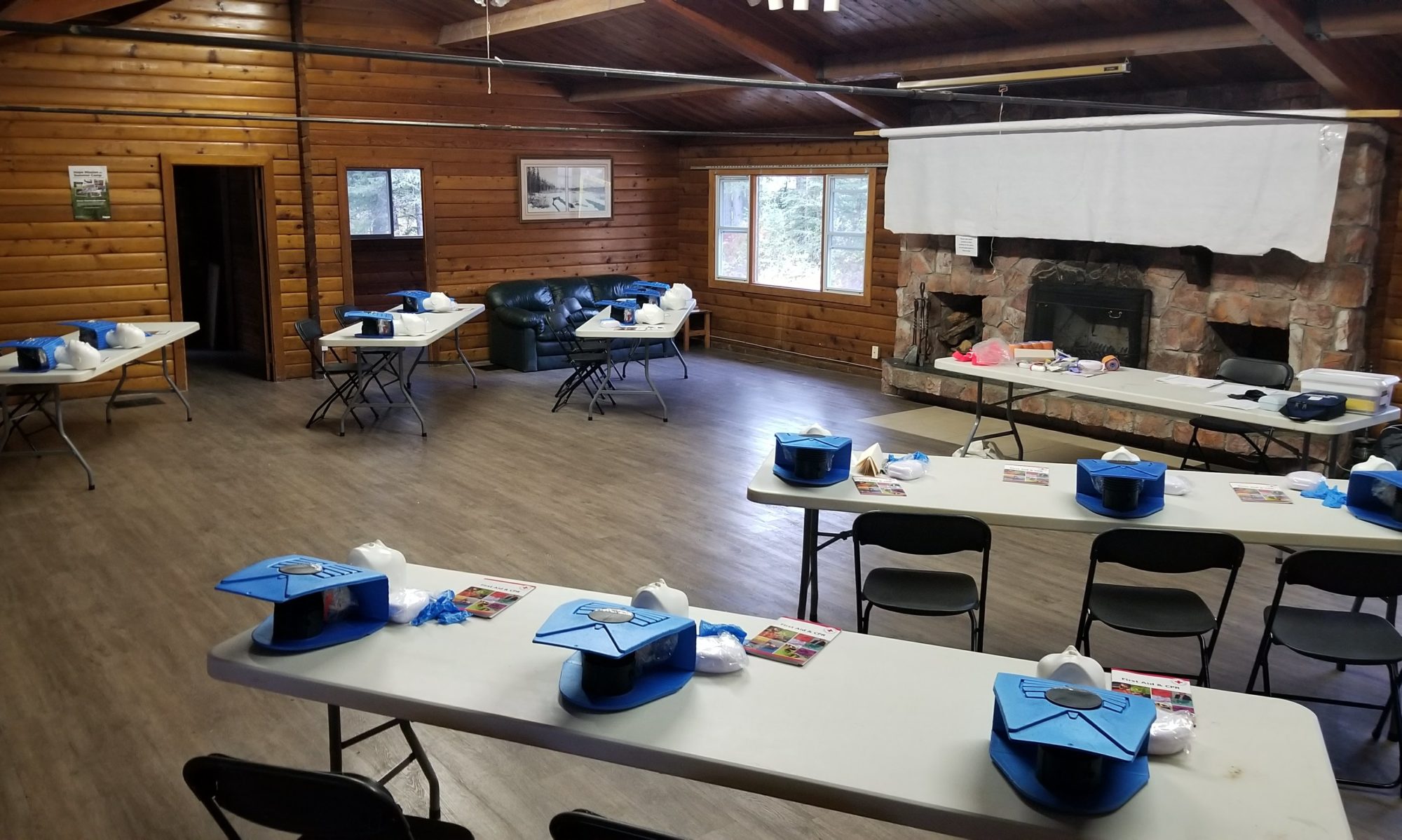I haven’t figured out booking on my site yet so I’m just doing E-Transfer to OutThereFirstAid@gmail.com
That will hold your place in the course.
Only 10 spots left!
$225 course fee
$ 25 waterproof field book (only for WRFA)
+GST
Total $262.50
Are you a registered member of Scouts Canada? Take advantage of a $50 course fee discount!!
The course is approximately 20 hours in length.
We will certify you in CPR C with AED and the course certification is for 3 years.
Pocket mask and gloves will be available for use during course.
Ten Essentials below are recommended for wilderness travel but not required for the WRFA(don’t run out and buy these for the course if you don’t already have them) if you have them bring them for the Sunday field day.
AWRFA bridge course will work out of your typical weekend pack!
The Friday night 6-10 pm and Saturday 8am-5pm will be held in the Turner Valley United church basement, come in the side door.
Please bring a lunch that can be eaten on the go, snacks, and water.
Come dressed for the weather with your hiking day pack on the Sunday, we go rain or shine.
Outdoor location will be West Bragg Creek or SW of Turner Valley.
Please watch the videos below, we will be constructing a shelter on the field day.
A couple of videos, one on the original super Shelter, as well as the Harlton derivitive, which is more similar to the one I use in the course, except I don’t build the floor as we will be doing something different for the floor!
https://youtu.be/YqDEI2apKdY
https://youtu.be/NGSC8iYhC7k
And of course the hypothermia dance to practice 😉
https://www.backpacker.com/videos-photos/hypothermia-dance?jwsource=cl
The Ten Essentials
1. Knife (or multi tool)– including a locking blade, saw, screwdriver, pliers, and tweezers
2. Fire-making supplies – a lighter, matches, fire starter (can be homemade), candle, piece of pitch wood
3. Whistle – one that is shrill, works in cold and wet conditions, and will penetrate upwind through a storm
4. Navigation aids – a quality compass and map of the area
5. Sun protection – sunblock, lip balm, sunglasses, and a hat
6. First aid kit-sized for group size, activity, climate, and duration
7. Emergency food and water – energy bars, dried fruit, water or water filter.
8. Emergency clothing – synthetic fabrics such as fleece, or wool, a toque, mitts, rain poncho, etc.
9. Light – a headlamp or flashlight (make sure the batteries are working!)
10. Shelter – a space blanket with a rope or paracord to attach to each corner.


